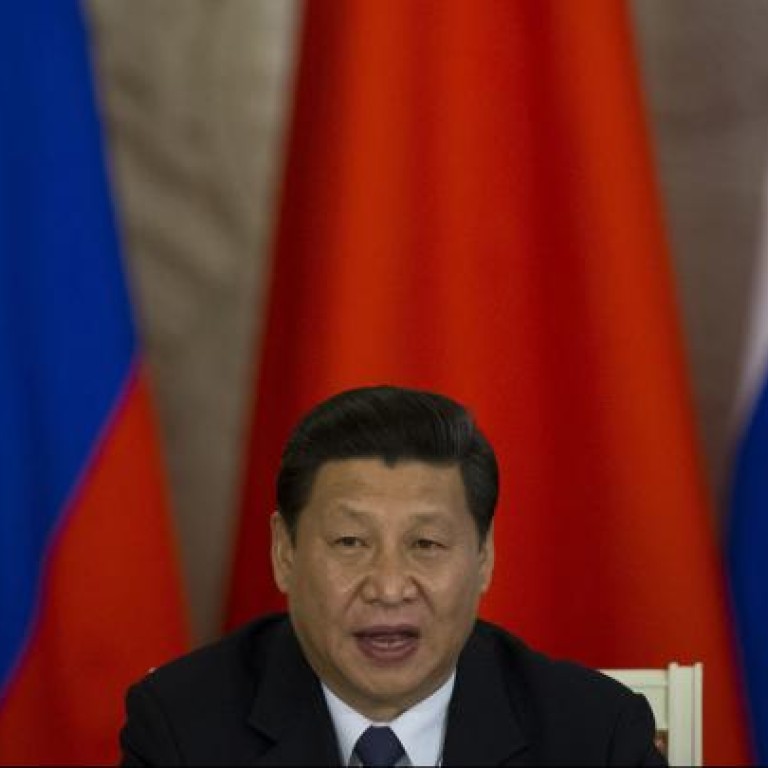
Show of close Sino-Russian relations masks conflicts, analysts say
Efforts by China and Russia to portray warm bilateral ties in Xi's maiden trip as president belie various contentious issues, analysts say
Xi Jinping's maiden diplomatic trip to Russia as president has seen the two countries attempt to portray a close relationship, but analysts say both nations still have to address sensitive issues.
The visit, which began on Friday, came as the United States is strengthening its presence in Asia - a move that Beijing believes is an attempt to contain China, which is involved in bitter territorial disputes with its neighbours.
Meanwhile, Russia is concerned with US plans to boost anti-ballistic-missile systems in Europe.
"Both China and Russia are delivering a message that they won't let their disagreements and conflicts affect co-operation, especially because of America's role in East Asia," said Professor Ni Lexiong , a Shanghai-based military expert.
However, some analysts point out that Sino-Russian bilateral ties are not as close as they may appear to be, especially given the failure to finalise a deal in which Russia would supply up to 68 billion cubic metres of natural gas annually to China for 30 years, due to pricing disagreements.
In the absence of such a deal, "we cannot say that there is a new phase in relations", said Moscow-based international affairs commentator Fyodor Lukyanov. But he said "both sides are trying to present the visit as the beginning of a new, and even more intense, co-operative period".
Lukyanov also says there is a degree of resentment in Russia regarding Beijing's influence over Moscow, and he notes that the more the neighbours interact, the more likely it will be that conflicts arise.
Official Russian figures show that bilateral trade reached nearly US$88 billion last year, with Chinese exports surpassing Russian exports.
Moscow is also aware of Beijing's developing ties with countries in Central Asia, particularly as China has begun pumping gas from Kazakhstan, Turkmenistan and Uzbekistan - enabling those countries to decrease their dependence on Russia as they reach out to China.
On the military front, China has become the fifth-largest exporter of major conventional arms worldwide, with a market share of 5 per cent, according to a report released last week by the Stockholm International Peace Research Institute, allowing China to rely less on arms imported from Russia, which fears that China is copying its military technologies.
But Professor Li Xing , a Russian studies lecturer at Beijing Normal University, says Xi's visit has shown that both sides are able to set aside their disputes in the interest of maintaining ties, as they still signed an agreement to boost bilateral trade to US$200 billion by 2020.
Russia's top oil producer, Rosneft, will increase oil supplies to China by 31 million tonnes a year, and allow China National Petroleum Corporation wider access to Rosneft's upstream projects. The two companies will also jointly explore offshore blocks in the Barents Sea.
"The two nations are not merely selling and buying oil; China is involved in energy projects in Russia," Li said.
"The two nations are transforming their political trust to facilitate economic and trade ties. There are disagreements on issues between the two nations, but these cannot be settled in just one talk, and they will not affect overall bilateral ties."
Tian Chunsheng , a research fellow at the Chinese Academy of Social Sciences, also says that the conflicting issues will not affect the momentum for bilateral co-operation.
Lukyanov says bilateral ties between Beijing and Moscow will not be derailed, but adds that Moscow will consolidate ties with other Asian countries to deal with economic imbalances associated with the growth of China's economy, and that Moscow will not abandon major trade partners such as the European Union and the United States.
"The EU is very important because of economic relations, and the US is still a major partner when it comes to strategic issues," he said.
"For Russia, it's very important to find a balanced approach. China is very important, but it's not the only partner."

